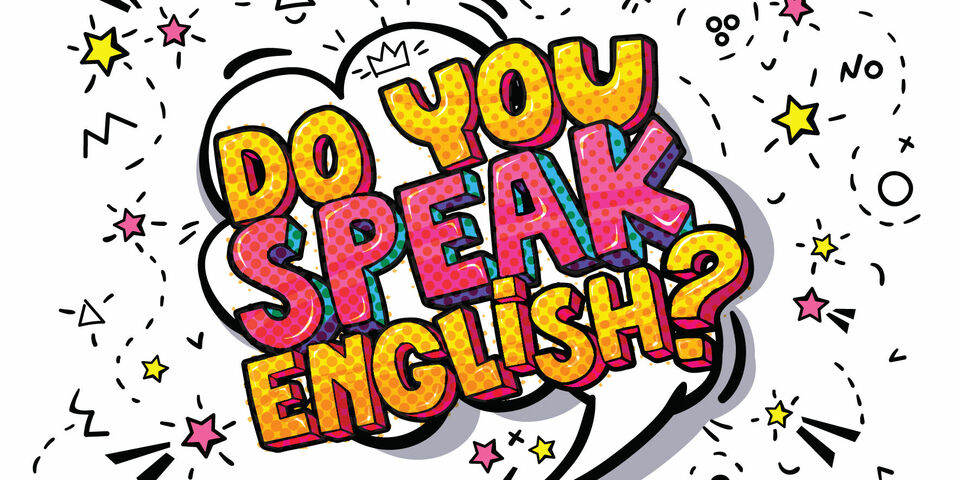Is English becoming the official language of Dutch universities?
In the new year, English will become the official language at the University of Twente and at Eindhoven University of Technology. Members of the Dutch House of Representatives and opponents of anglicisation are voicing critical opinions. Other universities are opting for a bilingual approach.
The decision to switch to English has not come out of the blue. The wish to transition was first voiced by the Executive Board of the University of Twente back in 2015, but it took some time to implement. Eindhoven University of Technology reached its decision in early 2018.
The topic of English in higher education is a sensitive issue, and Minister Ingrid Van Engelshoven has announced efforts to curb what is seen by some as rampant anglicisation. In principle, Van Engelshoven wants all degree programmes in the Netherlands to be taught in Dutch, unless there are good reasons to use another language of instruction. The legislation she has drawn up to this end has now been submitted for approval to the House of Representatives. But the language of instruction for specific degree programmes is not the same as the official language for policy documents and participation councils, for example. Both at the University of Twente and at Eindhoven University of Technology, some degree programmes will remain Dutch-taught.
At odds
Twente’s decision has been met with raised eyebrows by the Dutch Socialist Party (SP), which has submitted parliamentary questions. Is the switch to English not at odds with the General Administrative Law Act, “which states that government bodies and those employed by them must use the Dutch language”?
Previously, the SP also submitted parliamentary questions about Eindhoven University of Technology’s move away from Dutch, raising concerns about the effect this would have on non-academic staff not proficient in English. “I share the opinion that this should not lead to people losing their jobs”, says Van Engelshoven. As she sees it, universities will have to assess the required level of English per position, or even per individual member of staff.
Both universities cite the presence of international students as the main reason for transitioning to English. “The language we use to communicate with each other must contribute to inclusiveness and diversity. It is important that everyone is able to understand each other and get involved in everything that goes on here”, the University of Twente stated on Twitter.
The decision to switch entirely to English is driven by various reasons, policymaker Lilian Halsema earlier explained Cursor. “No integrated language policy was in place and we thought it important that one was introduced,” she said. “We wanted to increase accessibility in various areas, such as employee participation, and we wanted to prevent language becoming a barrier to communication and community building. Among academic staff, the working language is already largely English and almost all TU/e programs are taught in English. Only the Executive Board, the TU/e services, and the employee participation bodies still communicate mainly in Dutch.”
In practice
In Eindhoven, this means that every meeting and job interview will be held in English, that all minutes and official documents will be drawn up in English, and that all signage will be in English. There may be exceptions in some cases, as official documents that need to be submitted to various government bodies will still need to be written in Dutch.
A bilingual approach
At other universities with large international student populations, like Maastricht, Groningen, Delft and Wageningen, the debate about transitioning to English is less relevant: they are already bilingual and have no plans to abandon Dutch as an official language entirely.
At Maastricht University, where half of the student body is international, English has however gained the upper hand in practice. Many policy documents are now only drawn up in English, and the university’s participation councils often conduct their meetings in English, even if all the members present are Dutch. “We’ve noticed that a lot of our academic staff prefer to discuss their research in English but switch to Dutch when they want to talk about non-work related subjects,” says a spokesperson. The language used in job interviews depends on the applicant.
The other universities take a more pragmatic approach as well. “We use English only when there is a good reason to do so”, says a spokesperson for Wageningen University. In meetings, everyone speaks their own native language, with interpreters on hand to ensure that there’s no miscommunication. Delft University of Technology does not intend to adopt English as its official language any time soon either: “We see ourselves as a university firmly rooted in the Netherlands, and the Dutch language is part of that heritage”, a spokesperson said.
Cursor will publish another article about the implementation of English as the working language in 2020.


Discussion